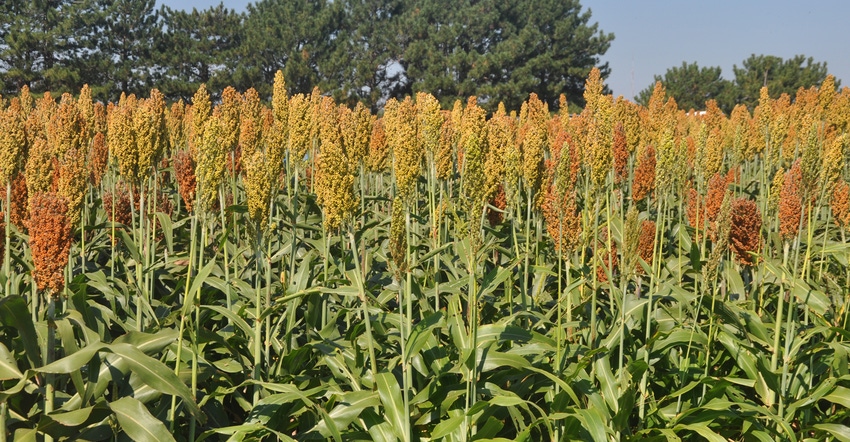March 30, 2018

Marketing and cost of production issues often take center stage in my work as senior policy advisor at National Sorghum Producers, as farm financial health is our first priority. So, unsurprisingly, my last few columns have focused extensively on these topics. Hoping to shake things up this month, I looked back over the last couple years and was surprised to see it has been nearly two years since I have covered sustainability.
Sustainability has always been very important to sorghum producers. After all, the Dust Bowl began in the Sorghum Belt, and if not for no-till — possibly the most important agronomic development in the sorghum world aside from the advent of hybrids in the 1950s — and the moisture-loving residue that accompanies the practice, life as we know it would not exist here. This is why National Sorghum Producers and the Sorghum Checkoff place an emphasis on sustainability.
What is sustainability and why is it important when farm profits are nowhere to be found? The answer is complicated, but I believe the reasoning behind our crop insurance agency’s name can shed some light on the subject. NSP started Sustainable Crop Insurance Services to help further the interests of sorghum producers, and while searching for a name, we were struck by the subtle congruity implied by a sorghum-backed organization with "sustainable" in its name.
Taken at face value, the name seems anything but subtle and more like an obvious nod to sorghum’s status as a water-sipper. However, we chose our name for a deeper reason. The fact is our crop insurance business would not be sustainable if our customers’ businesses were not sustainable. Every producer lives by the same principle — his or her business is not sustainable without a healthy environment. We take care of our customers so they will take care of us. Producers do the same for their land.
Financial sustainability and environmental sustainability are inextricably linked. Sorghum producers may have been the first to demonstrate this connection. Adapting their tillage practices helped turn land that once spawned a sandstorm so fierce it cast a shadow over unsuspecting lawmakers on Capitol Hill into some of the most productive in North America. Investing in soil health has paid massive dividends.
I believe sustainability has additional financial benefits for sorghum producers and all of American agriculture — and not always for obvious reasons. For example, ethanol sold in California commands a premium under the state’s Low Carbon Fuel Standard program. Through the program’s carbon credit market, producers growing grain used for ethanol production are being indirectly rewarded for the good work they are doing to help reduce carbon emissions.
Not worried about carbon emissions? No problem. Programs like the LCFS actually help incentivize good practices in other areas, as well. For example, 95% of farm-level carbon emissions in the LCFS’s primary ethanol model relate to nitrogen fertilizer application, so greater nitrogen use efficiency means fewer carbon emissions and an even larger premium under the LCFS. What else does greater nitrogen use efficiency mean? Greater nitrogen use efficiency means a higher return per unit of fertilizer used, and this in turn leads to greater profitability — and greater financial sustainability.
American agriculture has a great story to tell. If we view sustainability as an opportunity instead of a threat, we will reap benefits in unexpected ways. Case in point: The Dust Bowl was an utterly unforgettable decade, but no-till farming has made the decades since more productive than we could have ever imagined.
Cogborn writes from Abernathy, Texas. Find him on Twitter @nspchris.
About the Author(s)
You May Also Like




